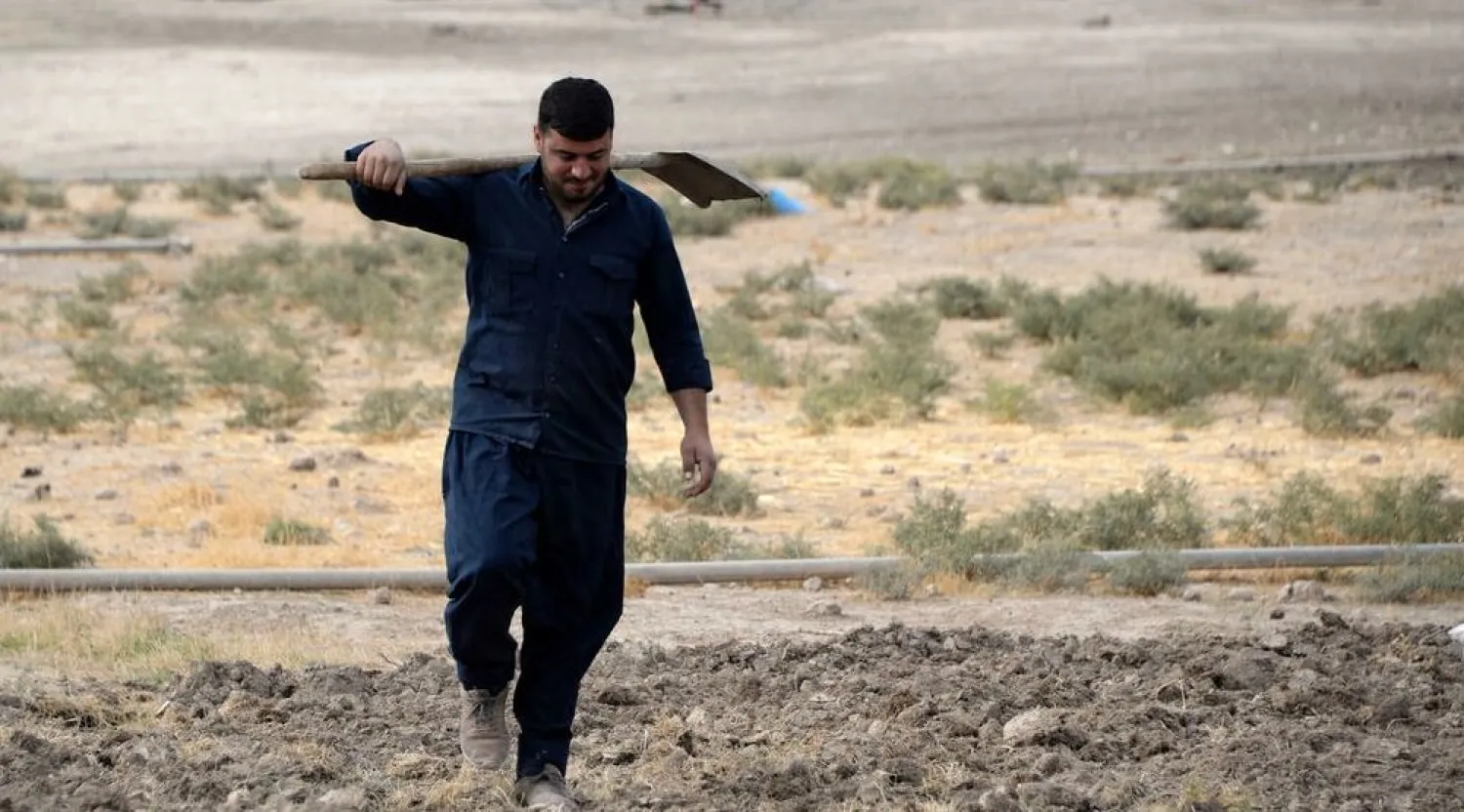Iraqi wheat farmer Khamis Ahmad Abbas lost it all when his battle with drought forced him to abandon his land, pushing him into unemployment.
Experts have warned that record low rainfall, compounded by climate change, are threatening social and economic disaster in Iraq.
"Growing wheat and barley is a gamble. It all depends on the rain," said the 42-year-old father of nine, AFP reported.
Unable to make ends meet, Abbas quit his land in the Plains of Nineveh, northeast of Mosul, part of the so-called Fertile Crescent where agriculture was born 12,000 years ago.
With temperatures soaring above 50 degrees Celsius (122 degrees Fahrenheit) and little rain, Abbas's fields quickly dried up.
Three months ago, he packed up his family -- two wives and nine children -- and moved to Mosul.
"Now I am unemployed," he told AFP, as he whiled away the time in a coffee shop in Iraq's second city.
"Sometimes I get small jobs, just enough to feed my family," said Abbas bitterly, who longs for the old days when he harvested wheat and barley like his father and grandfather before him.
His plight is shared by many farmers in the Nineveh Plains.
According to the International Organization for Migration (IOM), 447 families who were forced from their land in Nineveh by ISIS and then returned to it after the militants' defeat were forced to leave again between June and July this year because of the drought.
"Nearly all, if not all, the families were displaced due to inability to feed their cattle," the IOM said.
'Most affected'
For centuries, the Nineveh Plains were the breadbasket of Iraq, with 6,000 square kilometres (2,300 square miles) of arable land, said agriculture ministry spokesman Hamid al-Nayef.
But this year, Nineveh province has been Iraq's "most affected" by drought and exceptionally high temperatures.
In 2020, 927,000 tonnes of wheat were harvested in Nineveh, making it a "self-sufficient" province, said Abdelwahab al-Jarjiri, who heads the local cereal authority.
This year production plunged to 89,000 tonnes because of the drought.
The effects of low rainfall have been exacerbated by falling water levels on the Tigris and Euphrates rivers as a result of dam-building in neighboring Turkey and Iran, said Samah Hadid of the Norwegian Refugee Council (NRC).
"Iraq is facing its worst drought in modern times. This is due to record low levels of rainfall, reductions in water flow from its neighbors -- which has primarily hit the Euphrates and Tigris rivers -- and there is no doubt climate change has contributed to this crisis," she said.
"Far from being a problem in the distant future, climate change is already taking effect in the region and we see this clearly in parts of Iraq."
This month, a dam near the northern town of Zawita dried up completely for the first time since its construction in 2009, the head of the local irrigation authority Hega Abdelwahid said.
The dam, which used to contain up to 50,000 cubic meters of water, was fed by melting snow but there was very little rain this year, Abdelwahid said, and all that is left is cracked earth.
'Displacement and instability'
The severity of the drought has forced many farming families to leave their land and seek a living in urban areas.
Akram Yassin, 28, is one of those considering such a move.
He has already sold some of his 500 sheep and some land just "to survive", he said.
"I might have to change careers, my financial losses are more than my gains," he added.
In October, UN agencies, including the Food and Agriculture Organization (FAO), called for "urgent action" to avert a disaster in Iraq.
Before that in August, 13 aid organizations, including the NRC, warned that seven million people in Iraq risk losing access to water, forcing more from their homes.
But the exodus to urban centers like Mosul, Kirkuk and Basra could spark "instability" because they are ill-prepared for such an influx, said Roger Guiu, director of the Iraq-based Social Inquiry research center.
Guiu said Mosul had been left in ruins by the months-long battle to oust ISIS and "reconstruction has been slow".
The city's roads and sewers have been rebuilt but in the health sector only 30 to 40 percent of services have been rehabilitated, district prefect Zuhair al-Araji told AFP.









